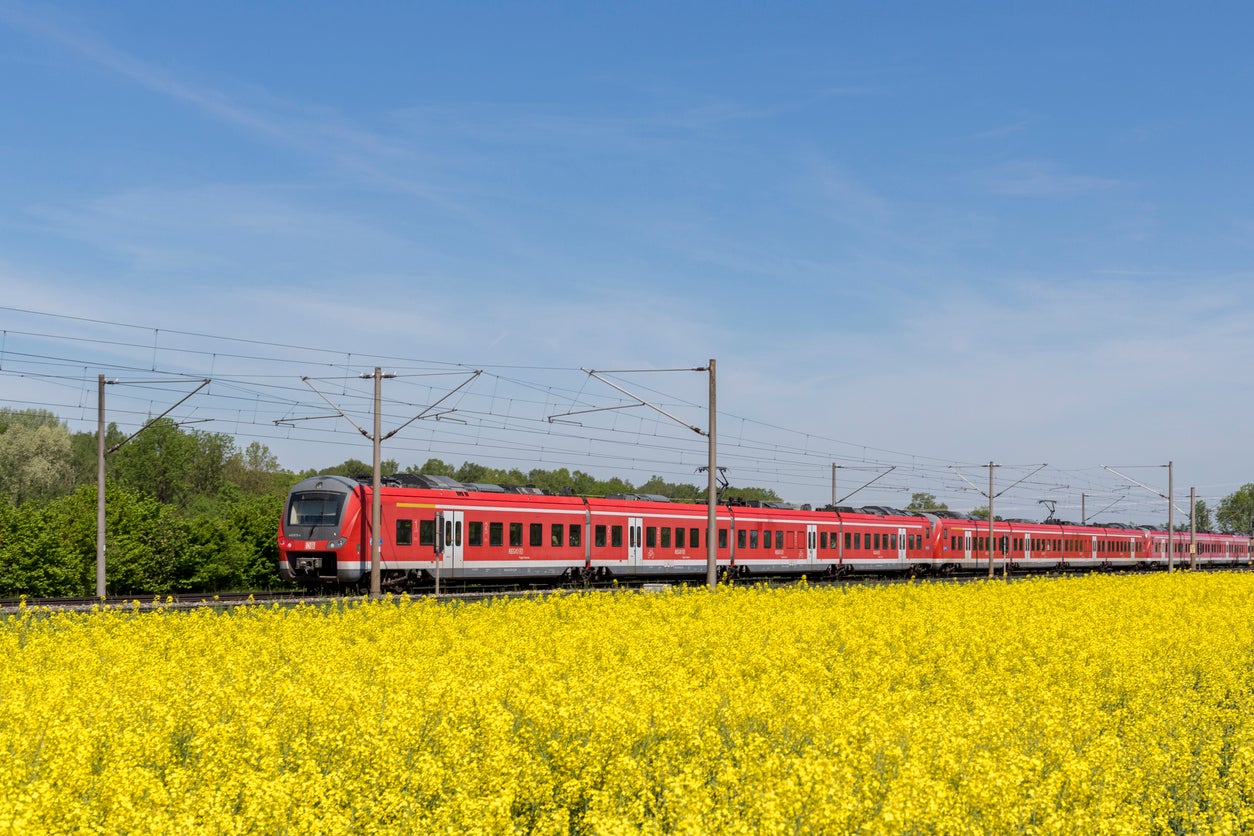Germany’s massively discounted rail ticket scheme ‘saved 1.8 million tons of CO2’
‘The popularity of the €9 tickets had been unabated and the positive effect on it in tackling climate change is verifiable,’ says transport association

Your support helps us to tell the story
From reproductive rights to climate change to Big Tech, The Independent is on the ground when the story is developing. Whether it's investigating the financials of Elon Musk's pro-Trump PAC or producing our latest documentary, 'The A Word', which shines a light on the American women fighting for reproductive rights, we know how important it is to parse out the facts from the messaging.
At such a critical moment in US history, we need reporters on the ground. Your donation allows us to keep sending journalists to speak to both sides of the story.
The Independent is trusted by Americans across the entire political spectrum. And unlike many other quality news outlets, we choose not to lock Americans out of our reporting and analysis with paywalls. We believe quality journalism should be available to everyone, paid for by those who can afford it.
Your support makes all the difference.Germany’s much-vaunted discounted train ticket scheme “saved 1.8 million tons of CO2”, according to new research.
The pilot programme, which offered a flat fare of €9 per month for unlimited journeys on regional trains, trams and buses, ran for three months from June until the end of August.
Around 52 million tickets were sold over the summer, with a fifth of these going to people who wouldn’t ordinarily use public transport, research from the Association of German Transport Companies (VDV) and Deutsche Bahn claimed.
Travellers switching from using cars to taking trains and buses to get around accounted for the carbon emissions savings, said the VDV.
“The popularity of the €9 tickets had been unabated and the positive effect on it in tackling climate change is verifiable,” the VDV said, adding that the emissions saved could power 350,000 homes.
As part of its reasearch, VDV interviewed around 6,000 passengers a week, totalling 78,000, from across the country.
However, research by the Technical University of Munich suggested that just 3 per cent of 1,000 study participants had used their cars less often, while 35 per cent increased their use of buses and trains.
The pass allowed 30 days of journeys on Deutsche Bahn (German Railways) trains, as well as local transport by tram, bus, U-Bahn and even some river ferries.
It did not include journeys on intercity expresses classed as IC, ICE and EuroCity, nor on privately operated services such as Flixtrain and Thalys.
Olaf Scholz, the German chancellor, has called the €9 ticket “our best idea yet”, but Germany’s federal finance minister Christian Lindner has ruled out extending it amid calls for another scheme to succeed it.
Ideas for alternatives include a monthly ticket for either €29 (about £24.50) or €69 (about £58), or a €365 (about £308) annual ticket for train journeys in specific areas of the country, according to reports.
Independent travel correspondent Simon Calder, who tried the original cheap ticket scheme in June, said at the time: “The €9 ticket is highly unlikely to be extended beyond 11.59pm on 31 August. After that I can revert to the Quer-durchs-Land-Ticket – the €42 (£36) day ticket that covers the same transport.
“But I hope that the summer of Wanderlust may trigger a permanent lower-price option to continue our love affair with the Bahn.”
Join our commenting forum
Join thought-provoking conversations, follow other Independent readers and see their replies
Comments